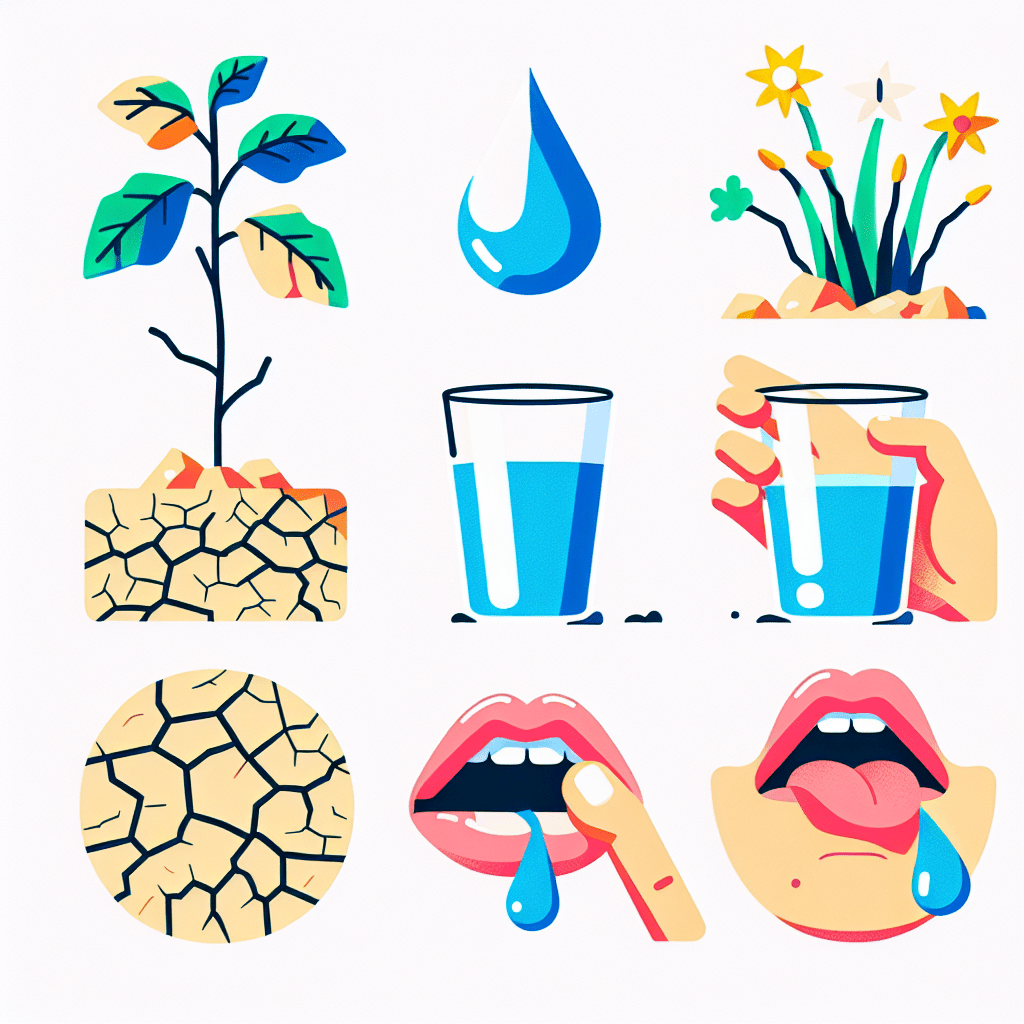signs of dehydration

Understanding Dehydration: Signs and Symptoms
Dehydration is a common health issue that occurs when your body loses more fluids than it takes in. It can happen to anyone, regardless of age or health status. If not addressed promptly, dehydration can lead to serious health problems. Understanding the signs of dehydration is crucial in preventing its adverse effects.
Common Signs of Dehydration
The most common signs of dehydration include thirst, dry mouth, fatigue, and dizziness. These symptoms are the body's initial response to fluid loss. However, it's important to note that thirst isn't always a reliable early indicator of the body's need for water. Many people, particularly older adults, don't feel thirsty until they're already dehydrated.
Other signs of dehydration include dark yellow urine, decreased urine output, dry skin, and lightheadedness. In severe cases, symptoms can escalate to confusion, rapid heartbeat, rapid breathing, sunken eyes, and fainting.
Dehydration and Your Health
Dehydration can have serious implications on your health. It can lead to heat injury, urinary and kidney problems, seizures, and even hypovolemic shock, a life-threatening condition. Moreover, chronic dehydration can negatively impact heart health. A study published in the American Journal of Epidemiology found that adequate hydration is associated with a reduced risk of coronary heart disease.
"Adequate hydration is associated with a reduced risk of coronary heart disease." - American Journal of Epidemiology
Dehydration can also affect cognitive function. According to a study published in the European Journal of Nutrition, even mild dehydration can impair cognitive performance, particularly in tasks requiring attention, executive function, and motor coordination.
"Even mild dehydration can impair cognitive performance." - European Journal of Nutrition
Preventing Dehydration
Preventing dehydration is relatively simple and involves maintaining a regular intake of fluids. Experts recommend drinking at least eight 8-ounce glasses of water a day. However, individual needs can vary depending on factors such as age, sex, weight, and physical activity level.
In addition to drinking water, eating foods with high water content can also help prevent dehydration. Fruits and vegetables like cucumbers, watermelon, and strawberries are excellent sources of hydration.
It's also important to increase fluid intake when engaging in activities that cause excessive sweating, such as exercise, or when you're sick with a fever, vomiting, or diarrhea.
Conclusion
Staying hydrated is vital for maintaining overall health. Recognizing the signs of dehydration and taking steps to prevent it can help protect you from its potentially serious effects. As the American Heart Association states:
"Staying hydrated is critical for your heart health." - American Heart Association
In summary, the signs of dehydration include thirst, dry mouth, fatigue, dizziness, dark yellow urine, decreased urine output, dry skin, and lightheadedness. Severe dehydration can lead to confusion, rapid heartbeat, rapid breathing, sunken eyes, and fainting. Chronic dehydration can negatively impact heart health and cognitive function. Preventing dehydration involves maintaining a regular intake of fluids and eating foods with high water content. Remember, staying hydrated is not just about quenching your thirst, it's about maintaining your overall health.



